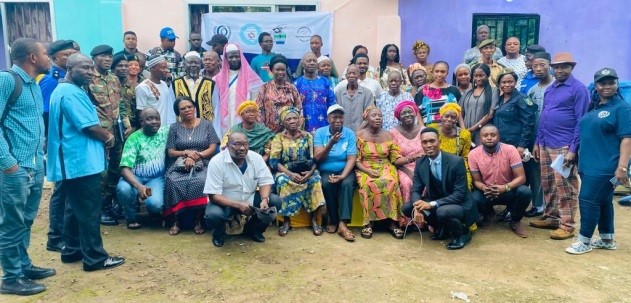BY BOCKARIE ALIEU
232NEWS, FREETOWN
The Campaign for Human Rights and Development International (CHRDI), in collaboration with the Election Conflict Prevention and Mediation Working Group (ECPMG), has concluded post-election dialogue on promoting social cohesion and peaceful coexistence in Sierra Leone.
The Election Conflict Prevention and Mediation Working Group comprises the Inter-Religious Council of Sierra Leone (IRC-SL), the Eminent Women Peace Mediators Sierra Leone (EWPM-SL), the Campaign for Human Rights and Development International (CHRDI), and the Electoral Commission for Sierra Leone (EC-SL).
The goal of the group is to promote initiatives designed to strengthen and prevent violence in electoral processes and democratic institutions before, during, and after elections in Sierra Leone. As previous elections have been prone to violent behaviour, the group is charged with the responsibility of investigating threats, identifying conflict zones, and carrying out advocacy in a bid to mitigate the factors and find peaceful mechanisms.
ECPMG believes that democratic electoral processes should be inclusive, transparent, accountable, and designed to promote public confidence.
With support from Open Society Africa, the engagements in Port Loko, Tonkolili, Moyamba, Bo, and Freetown brought together community, traditional, and religious leaders, as well as the security sector, who engaged in candid and productive discussions on the topic “Promoting Social Cohesion and Community Dialogue Post-Elections Engagement.”
The aim of the engagement was to promote youth inclusion and civic participation by providing young women and men, religious and traditional leaders, members of the security sector, and community stakeholders with the necessary knowledge and materials to lead the dialogue on national unity and social cohesion in the country.
CHRDI and ECPMG believe that individuals and groups that are excluded from political processes have limited voices or power to effect the attitudes, norms, and policies that drive social cohesion in the first place.
“Civil society must play a strong role in policy design and monitoring to have informed, transparent, and participatory systems of governance, making it more likely that cultural and other public policies and measures reflect and serve people’s needs,” the Chief Executive of CHRDI, Abdul M. Fatoma, said.
He stated that reducing poverty was not enough, suggesting that policy development must go beyond targeted approaches and consider broader social cohesion objectives that will reduce income inequalities as well as improve access to basic services and opportunities for decent jobs and upward social mobility.
Fostering the desired outcomes of social cohesion has been the perennial goal of the Election Conflict Prevention and Mediation Working Group, especially in countries like Sierra Leone that have suffered significantly from conflict.
“In the design of our social cohesion activities, we focus on maintaining a sense of belonging, fostering civic values, promoting trust, and enhancing social engagement with a focus on community leaders, encouraging them to play an active and positive role in society,” Mr. Fatoma stated, adding that a healthy culture of peace creates space for civil society and the media to play their full roles.
CHRDI and ECPMG also believe that community dialogue is a critical lifeline to promoting peace, as it provides the perfect avenues for partnerships between different actors within the community.
ECPMG members and partners promote a culture of peace by generating understanding of different cultures and protecting the country’s precious heritage.

